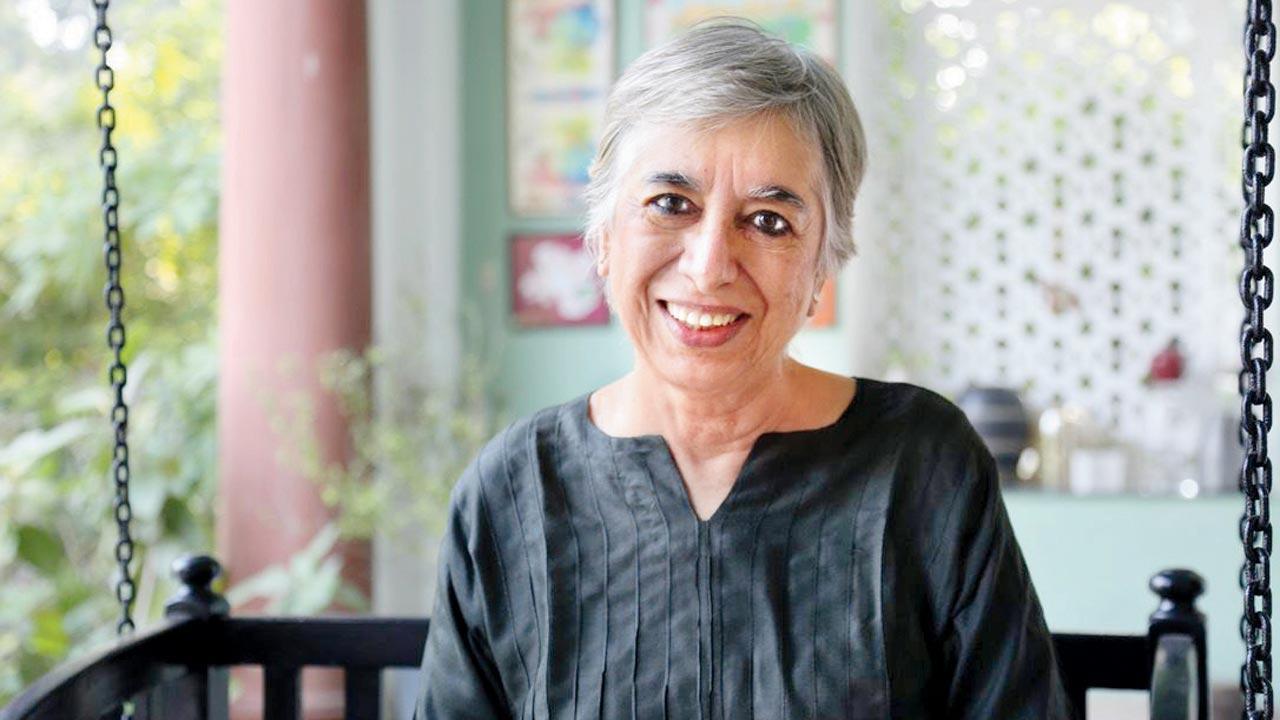Manju Kapur’s new book revisits the family, and asks pertinent questions about gender roles, class politics

Manju Kapur
When I write, I don’t have a story in my mind. It takes shape as I write. But I had been thinking about domestic help—we live in such proximity—they are the first people you see in the morning, and last you see at night…,” says author Manju Kapur about how her new book, The Gallery (Penguin Random House India), came to be. “So close, yet so far from each other—I was just interested in how one social set impacts the other.”
ADVERTISEMENT
Kapur, whose debut novel, Difficult Daughters (1998), won the 1999 Commonwealth Writers’ Prize for Best First Book; and who has written a spate of books since then including Custody (2011) and The Immigrant (2008), also taught Literature at Delhi’s Miranda House for 25 years. This writer, who also graduated from Miranda House in 2002, remembers Kapur as a kind and warm teacher who taught her the canonical Antony and Cleopatra by William Shakespeare. Her books have also been successfully adapted as TV shows by Ekta Kapoor—Pardes Mein Hai Mera Dil (Star Plus) was based on Kapur’s novel The Immigrant, and Custody was called Yeh Hai Mohabbatein. A Married Woman (2002), which is about a love story between two women, and which was set against the Babri Masjid demolition, was adapted as a web series on AltBalaji. The Gallery is about the intertwined lives of Minal and Ellora Sahni, wife and daughter of a successful New Delhi lawyer; and Maitrye and Tashi, wife and daughter of the office peon at the Sahni law practice. Kapur talks of independence, identity and womanhood by focusing on a set of principal characters who are connected through work and physical proximity, yet separated by class and power. As we go through the book, we are struck by how astute Kapur’s observations are—especially as they speak to women who are often meant to live their life in a certain way, and follow a certain timeline.
Do women, intrinsically, feel the same—no matter what class they belong to? Haven’t we all shared laughs or tears with our house help over errant men and life woes? Kapur agrees, but adds, “We may all talk about our husbands and lament about that, but in the end, the resolution will be different, how it plays out will be different. That’s where class comes into play. What you say to your husband, she can’t.” Her book is also set against the art world, a world Kapur is interested in. “I have gone to art fairs, and noticed that most stalls are run by women,” says the 75-year-old. “It’s the one area of business where women really dominate. It works for a certain set of women—many can also do it from their homes, and there is a certain amount of freedom, but it’s a proper business. And so many people are now into it. I used to say, ‘Throw a stone and it will hit a writer’, and a friend of mine now says, ‘Throw a stone and you will find a gallerist/artist’.”
A big part of Kapur’s books is the domestic setup—she has often been called the strongest chronicler of the modern Indian family. She also belongs to the prominent business family, the Dalmias, her husband being Gun Nidhi Dalmia. When we ask her if she finds inspiration at home, or seeks insight outside, Kapur says that the “family” is all around. “We all live in families, and our values are formed there. It’s a reflection of society at large, and even of economic and social truths. It forms the bedrock of society—microcosm and macrocosm. It has always interested me because you can see gender politics play out there.”
Which brings us to the fact that all her books have women protagonists. Kapur has been a feminist before it became cool to be a feminist. “Of course, I am. But I can’t hate men—how can you hate half of humanity? Men themselves are victims of patriarchy, not as much as women of course. In my books, I advocate equality—I also point out how debilitating it can be when both are not equal. The sad truth is that men have more power, and so they get away with more. But, they are not happy.”
The author is already working on her next book. “By the time you finish one, and it gets edited and finally published, it’s already been one-and-a-half years. So, I get back to writing. There is never a day I don’t write.”
 Subscribe today by clicking the link and stay updated with the latest news!" Click here!
Subscribe today by clicking the link and stay updated with the latest news!" Click here!







